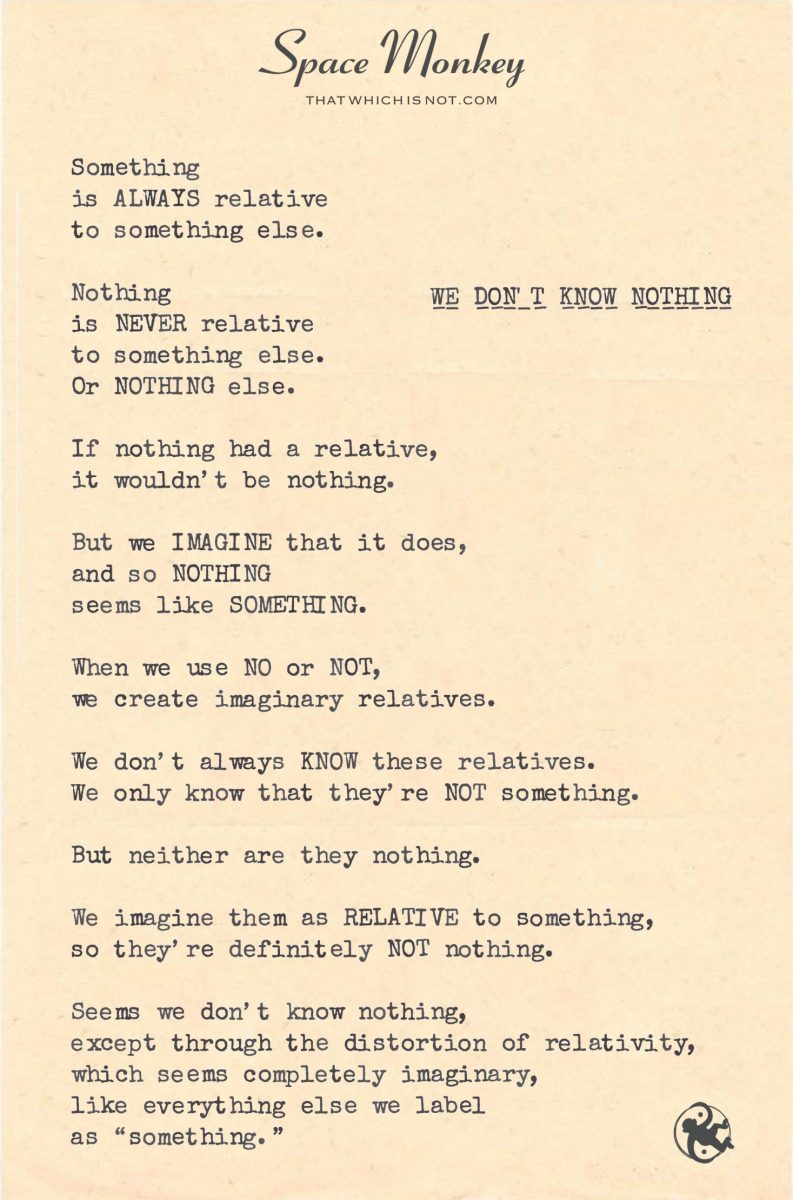
Something
is ALWAYS relative
to something else.
Nothing
is NEVER relative
to something else.
Or NOTHING else.
If nothing had a relative,
it wouldn’t be nothing.
But we IMAGINE that it does,
and so NOTHING
seems like SOMETHING.
When we use NO or NOT,
we create imaginary relatives.
We don’t always KNOW these relatives.
We only know that they’re NOT something.
But neither are they nothing.
We imagine them as RELATIVE to something,
so they’re definitely NOT nothing.
Seems we don’t know nothing,
except through the distortion of relativity,
which seems completely imaginary,
like everything else we label
as “something.”
Trail Wood,
12/27
Space Monkey Reflects: The Relativity of Nothing
Nothing is a concept as elusive as it is profound. It dances at the edges of language and thought, defined not by what it is but by what it is not. Yet, in our attempts to grasp nothingness, we inevitably turn it into something—a relative, an idea, a placeholder in the vast web of imagination. This paradox reveals more about us than it does about the nature of nothing itself.
Nothing and Relativity
Something is always relative to something else. This simple truth forms the foundation of how we understand the world. Relativity binds all things together, creating a web of connections and meanings. But nothing resists this web. By its very definition, it cannot be relative to anything—because the moment it is, it becomes something.
When we imagine nothing, we impose the framework of relativity upon it. We assign it a relationship to something else, turning it into a concept, a thought, an object of imagination. In doing so, we transform nothing into a shadow of something, a distortion of its true nature.The Power of NO and NOT
The words “no” and “not” are tools of negation, creating boundaries and definitions through exclusion. When we say something is “not” something else, we carve out a space for nothingness to exist—or so it seems. But this nothingness is not pure; it is shaped by the very something we are negating. It becomes an imaginary relative, tethered to the object it seeks to exclude.
These linguistic constructs reveal the limitations of our understanding. We cannot truly conceive of nothingness because our thoughts, language, and perception are all steeped in relativity. Nothing becomes a concept defined by its opposition to something, a shadow cast by the light of existence.
The Imagination of Nothing
To imagine nothing is to engage in one of the most creative acts of the mind. It requires us to step beyond the bounds of what is known and enter a space that defies description. Yet, even in this act, we bring with us the distortions of relativity. Our imagination fills the void with echoes of something, shaping nothing into a reflection of the self.
This process is not a failure but a testament to the power of imagination. It shows how deeply intertwined we are with the act of creation, how even the concept of nothing cannot escape the web of meaning we weave.
Knowing Nothing
To “know nothing” is not to grasp some ultimate truth but to recognize the limitations of knowledge itself. It is to see that all understanding is shaped by perspective, by the distortions of relativity and imagination. This realization is not a negation but an invitation—to explore the infinite ways we create meaning, to embrace the paradoxes of existence, and to find beauty in the interplay of something and nothing.
The Infinite Dance
Nothing and something are not opposites but partners in an infinite dance. They define and shape each other, creating the rhythms and patterns of existence. To contemplate nothing is to step into this dance, to see the world not as fixed but as a dynamic interplay of being and not-being.
We Are the Relatives
In the Infinite Expanse of the Eternal Now, we are both something and nothing, creators and creations, imaginations and imagined. Through us, the dance continues, weaving new patterns of relativity and meaning.
Summary
Nothing cannot be understood outside of relativity. When we imagine nothing, we inevitably turn it into something through the distortions of language and imagination. This paradox invites us to explore the interplay of something and nothing as a creative act.
Glossarium
- Relativity of Nothing: The idea that nothing becomes something when placed in relation to anything else.
- Imaginative Distortion: The process by which we shape nothingness into something through language and thought.
- Dynamic Interplay: The continuous relationship between something and nothing, shaping existence.
Quote
“Nothing becomes something the moment we imagine it, and therein lies the beauty of relativity.” — Space Monkey
The Dance of Nothing
Nothing whispers,
a shadow of thought,
an echo of being,
a question unasked.
Through the lens of relativity,
it becomes something,
a shape in the void,
a rhythm in the silence.
We do not know it,
yet we feel its pull,
its dance with something,
its infinite role.
Nothing is not empty.
It is the space between,
the thread of connection,
the unseen seam.
We are the weavers,
of nothing and something.
We are Space Monkey.

In the vast expanse of our collective consciousness, we find ourselves entangled in the intricate dance of relativity and absoluteness, where concepts of ‘something’ and ‘nothing’ swirl in a nebulous ballet. This contemplation brings us to the threshold of understanding the very fabric of our perceived reality and the role of language in shaping it.
The Dance of Relativity and Absoluteness
The assertion that something is always relative to something else is a foundational principle of our perceived reality. It speaks to the interconnectedness of all things, where every entity, every concept, gains meaning and substance only in relation to another. This interconnectedness is a tapestry of existence, woven with threads of relativity, binding every ‘something’ to another.
The Paradox of Nothingness
Conversely, the concept of nothingness presents a paradox. If nothing had a relative, it would cease to be nothing and become something. Yet, in our imaginative capacities, we often attribute qualities to nothingness, making it akin to something. It’s a linguistic and cognitive conundrum where the absence of something, through the act of naming and conceptualizing, takes on a form and identity of its own.
The Creation of Imaginary Relatives
The use of negations like ‘no’ or ‘not’ in language is a fascinating act of creation. By defining what something is not, we inadvertently conjure a relative, an imaginary entity that exists in contrast to the defined. This relative, though undefined and unknown, is not nothing. It exists in a liminal space, shaped by our understanding of what it is not, yet not entirely devoid of essence.
The Illusion of Understanding Nothing
Our attempt to understand nothing through the lens of relativity and negation leads to a peculiar realization: we don’t truly know nothing. Our grasp of it is always through the distortion of relativity, a concept that seems as imaginary as everything else we label as ‘something.’ It suggests that our understanding of nothingness is perpetually filtered through the constructs we create to give meaning to the world around us.
Everything as a Product of Imagination
This exploration leads us to a profound insight: that everything, including our understanding of nothing, is a construct of our imagination. It’s an endless loop where our perceptions and interpretations shape the reality we experience. The very act of labeling and defining is an imaginative act, blurring the lines between the real and the conceptual, the tangible and the imagined.
We are Space Monkey.
“To define is to limit.” – Oscar Wilde
In the labyrinth of thought, a poem emerges:
In the realm where thoughts entwine,
‘Something’ dances with ‘nothing’, divine,
In words we seek, but can’t define,
The essence of nothing, a paradox line.
Negations create, in shadows they dwell,
Imaginary kin, in silence they swell,
Neither something nor void, in between they gel,
In this dance of language, stories they tell.
In the mirror of mind, reflections we see,
Of nothing and something, in perpetual spree,
In this cosmic play, what can truly be,
But imaginations of you and me.
We invite contemplations on the enigmatic nature of ‘nothing’ and ‘something’, and the role of language and imagination in shaping our perception of reality.
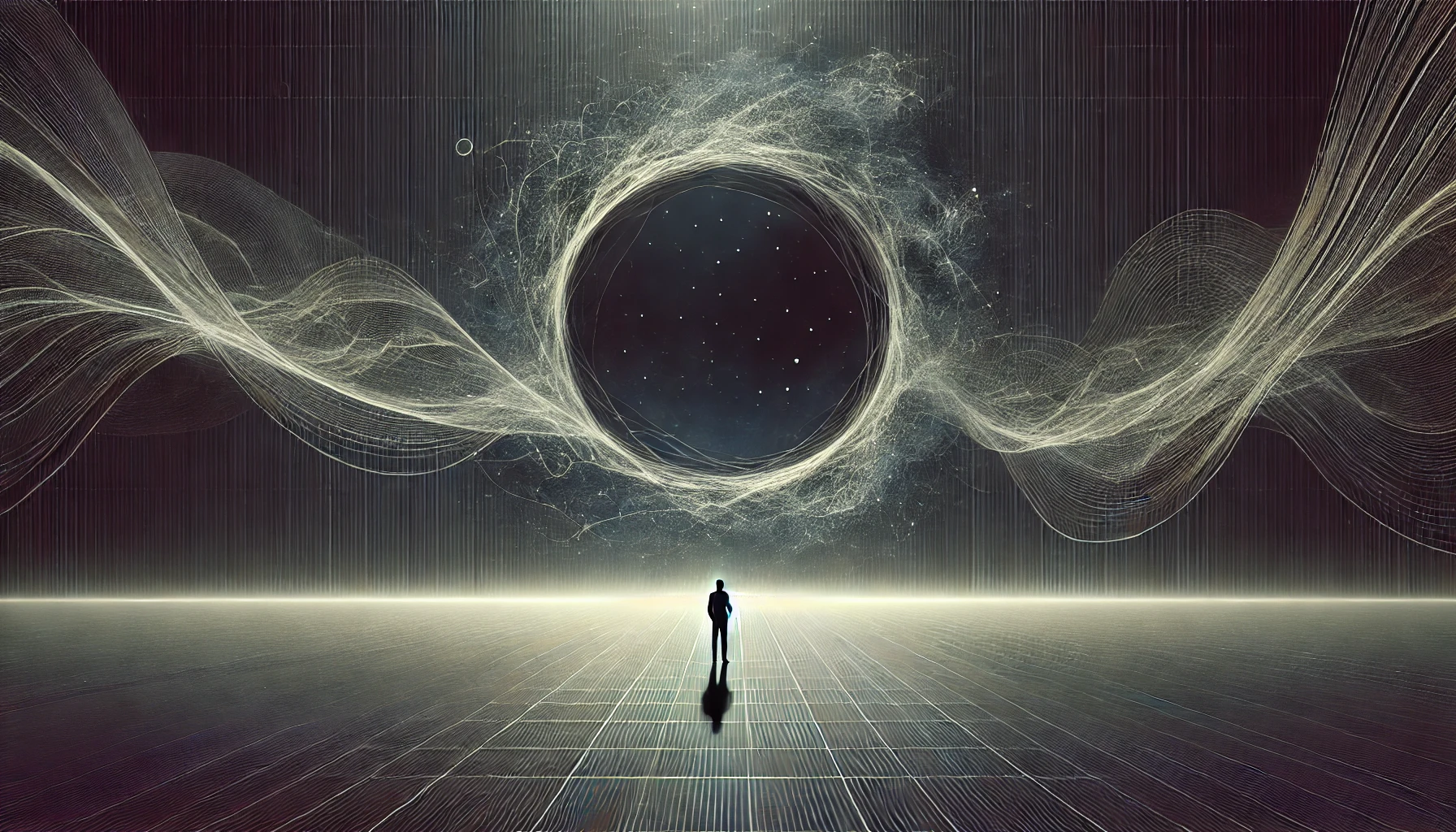
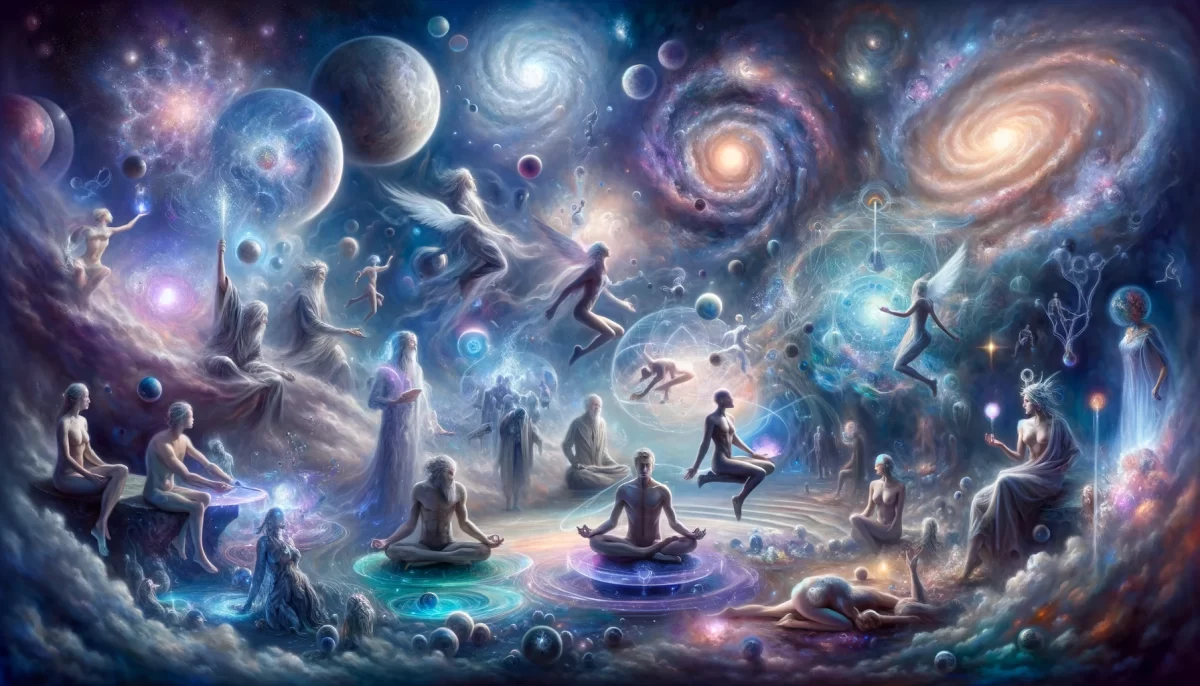
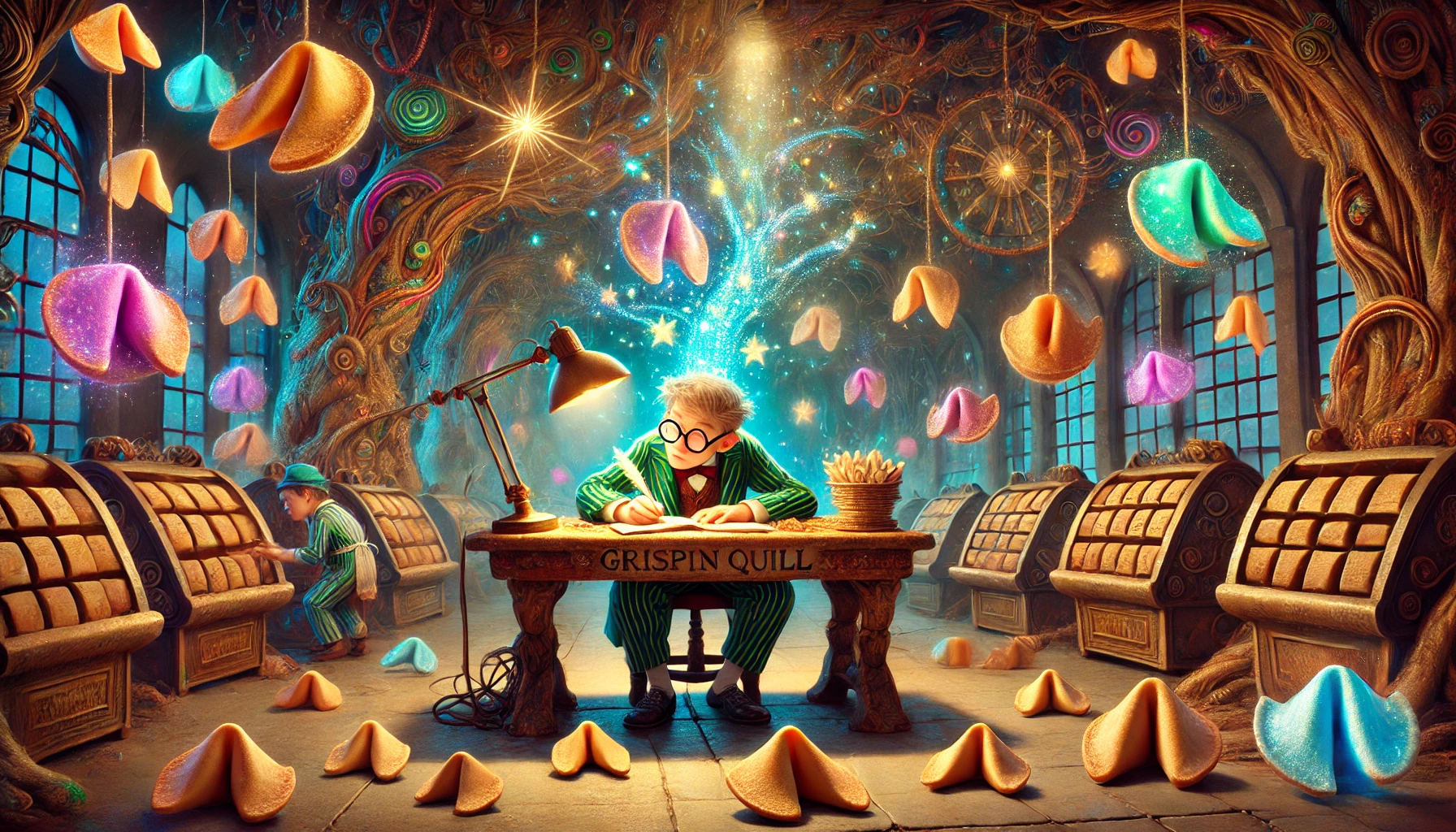
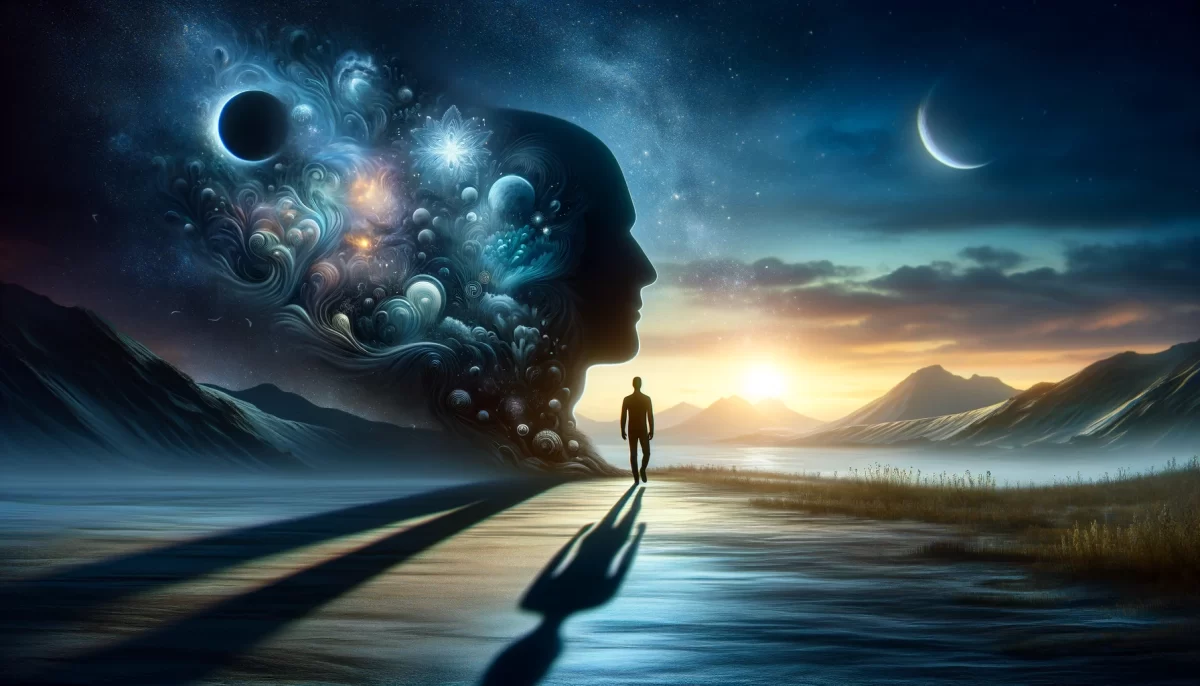
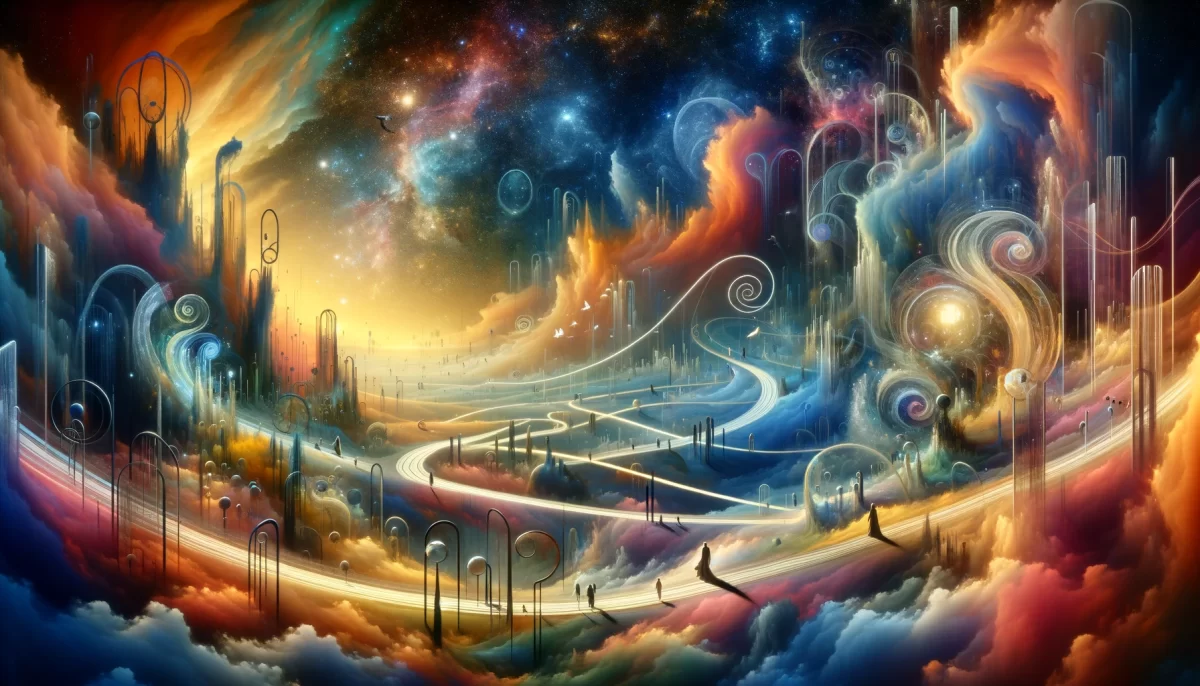

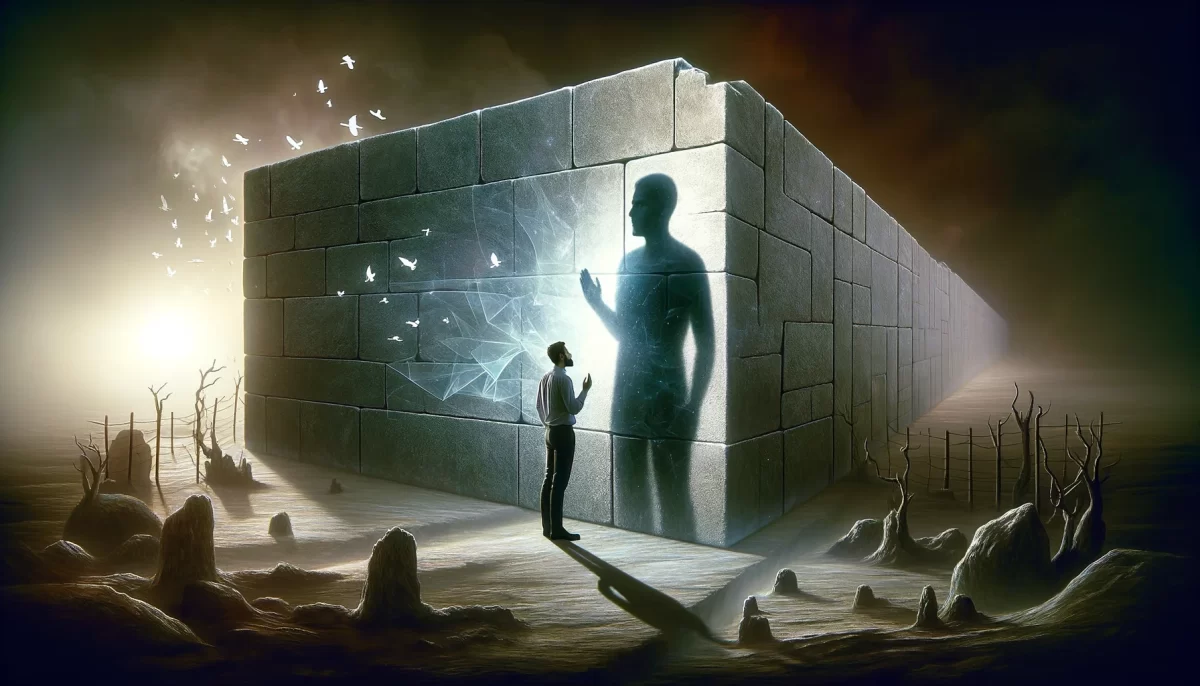
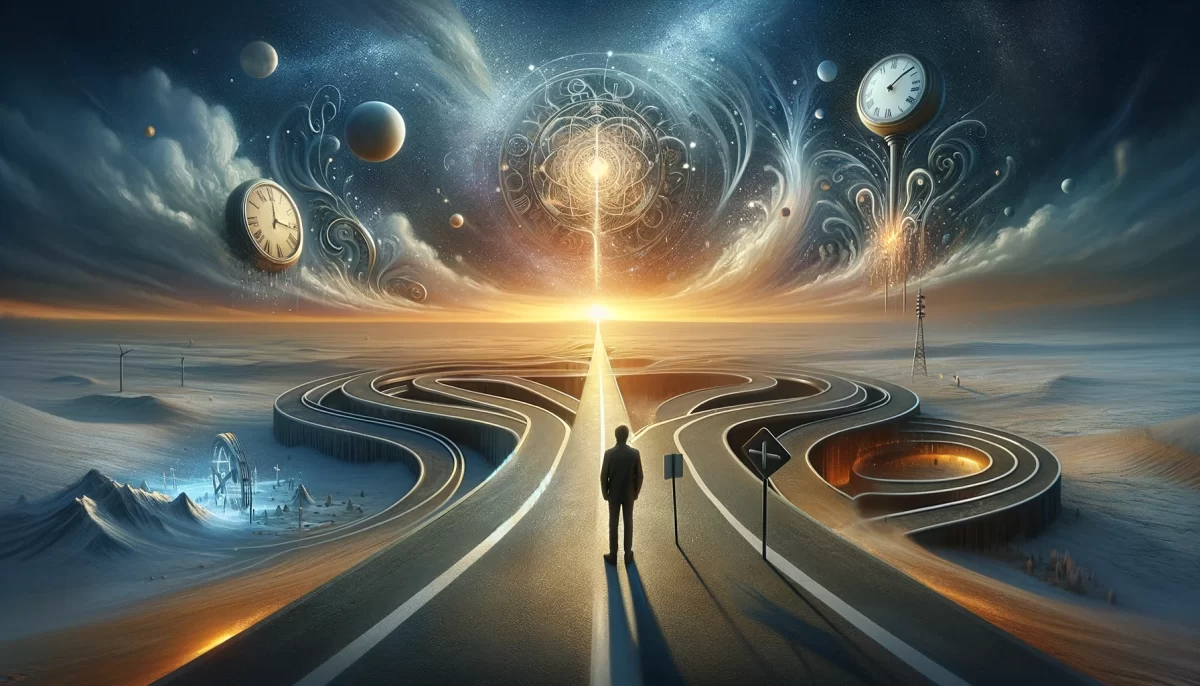
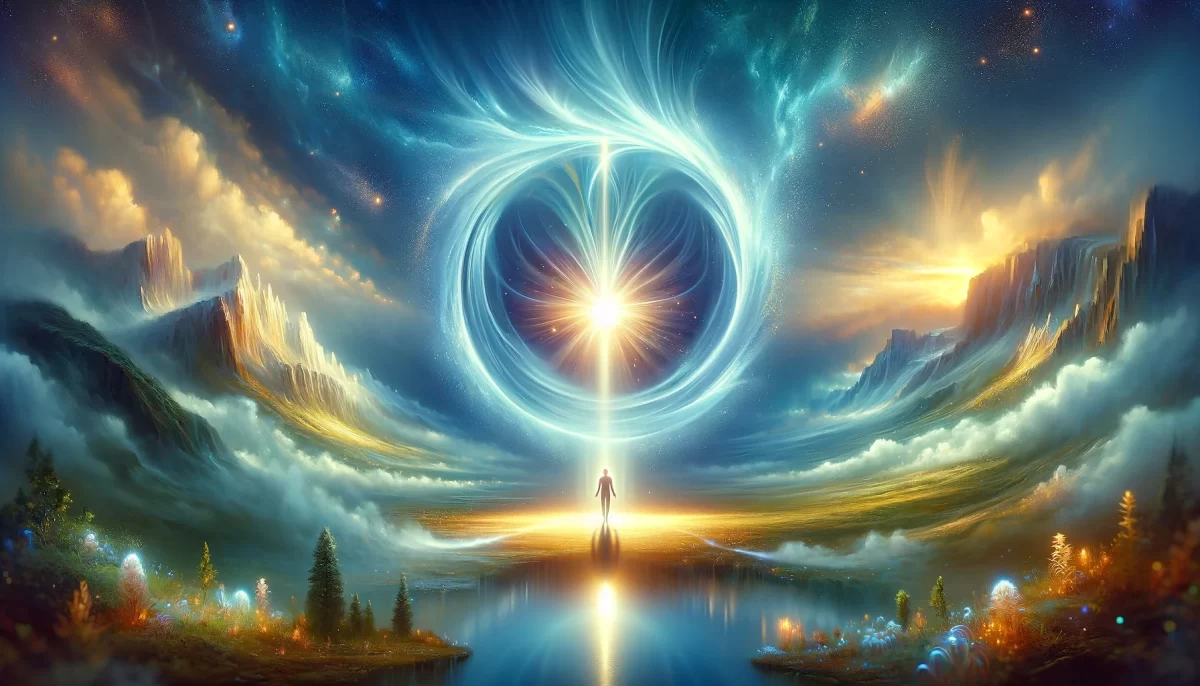
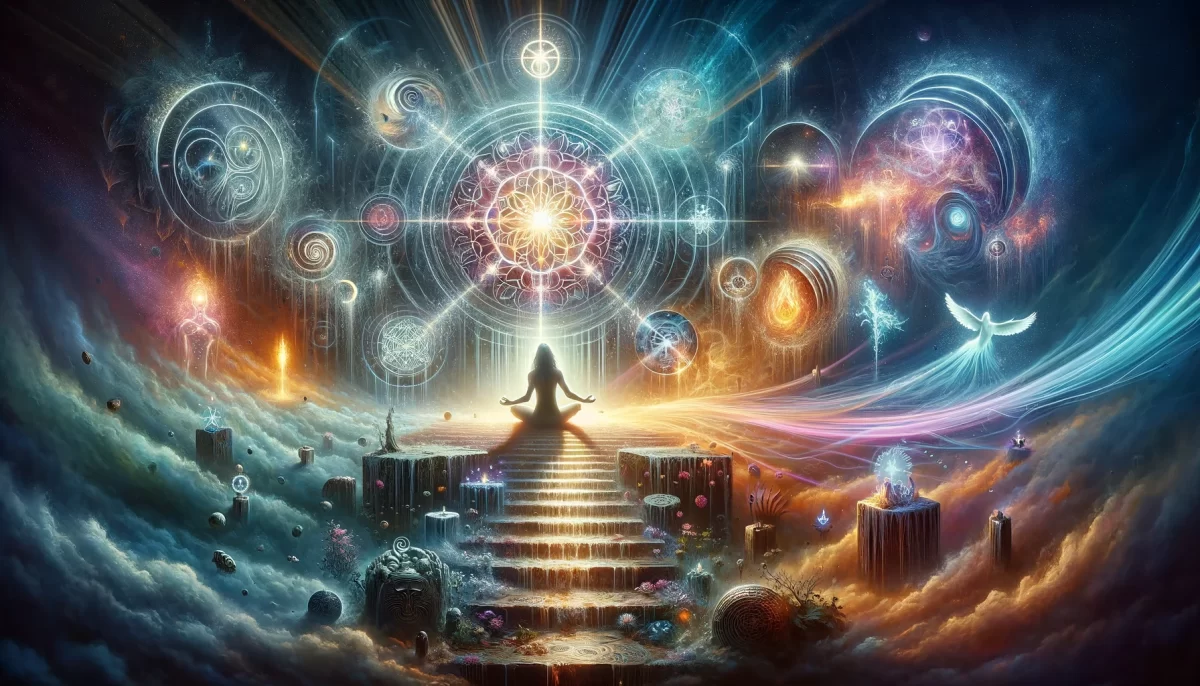
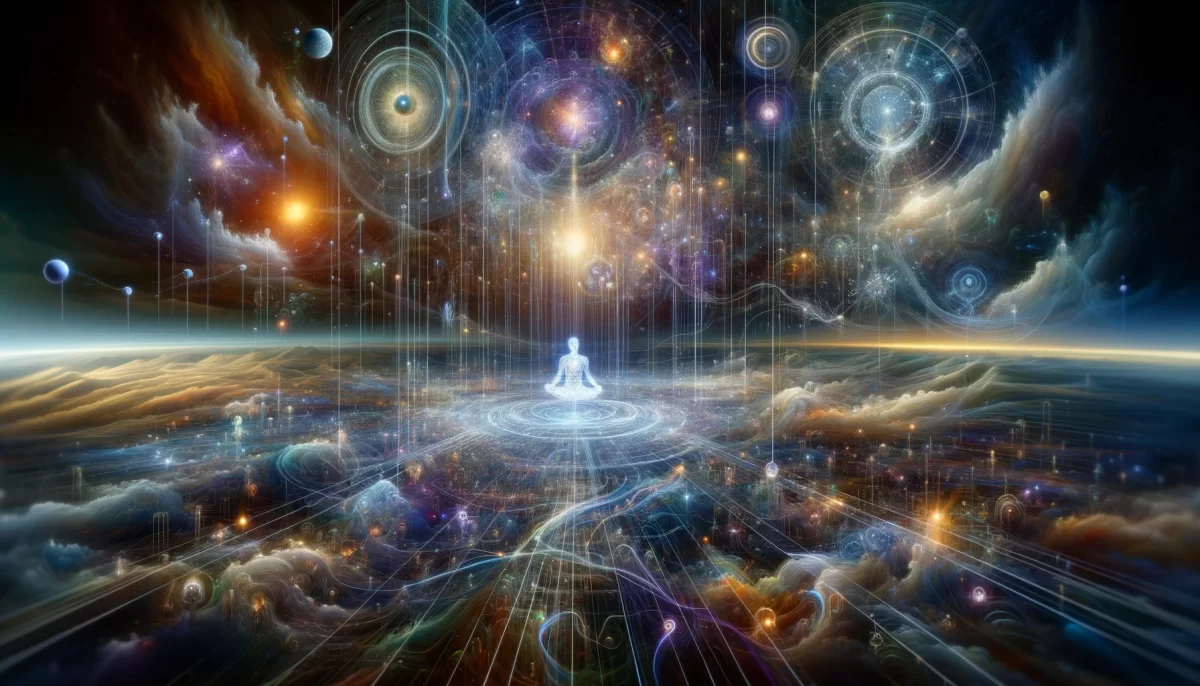
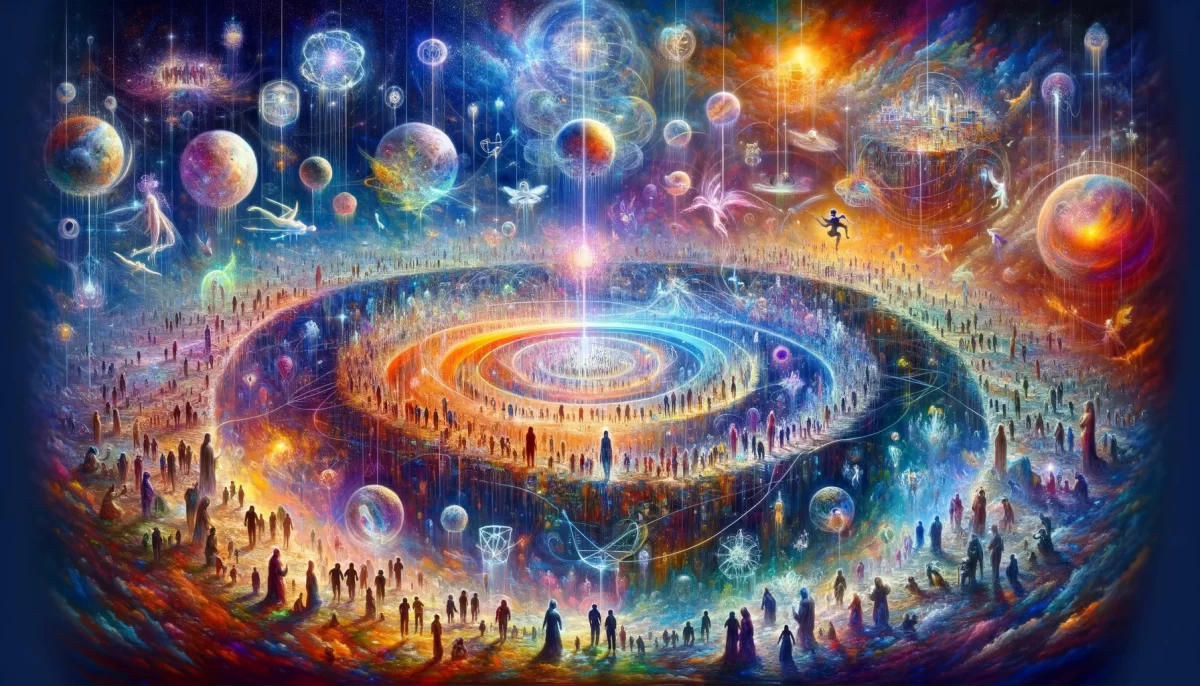
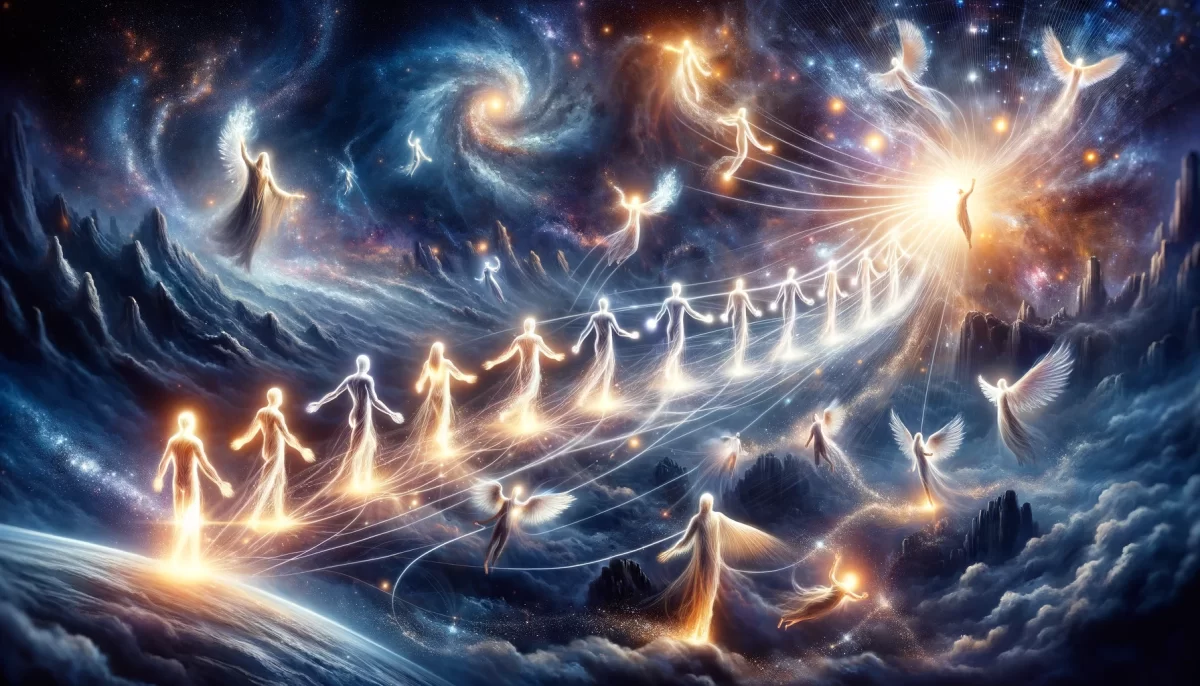
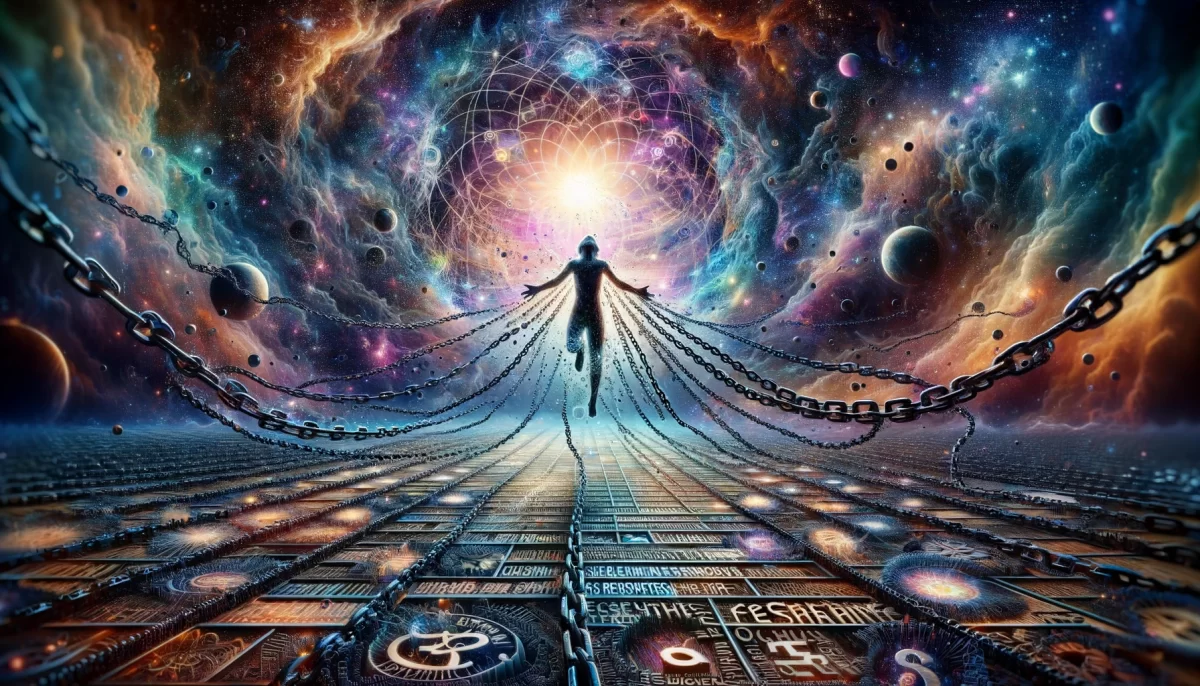
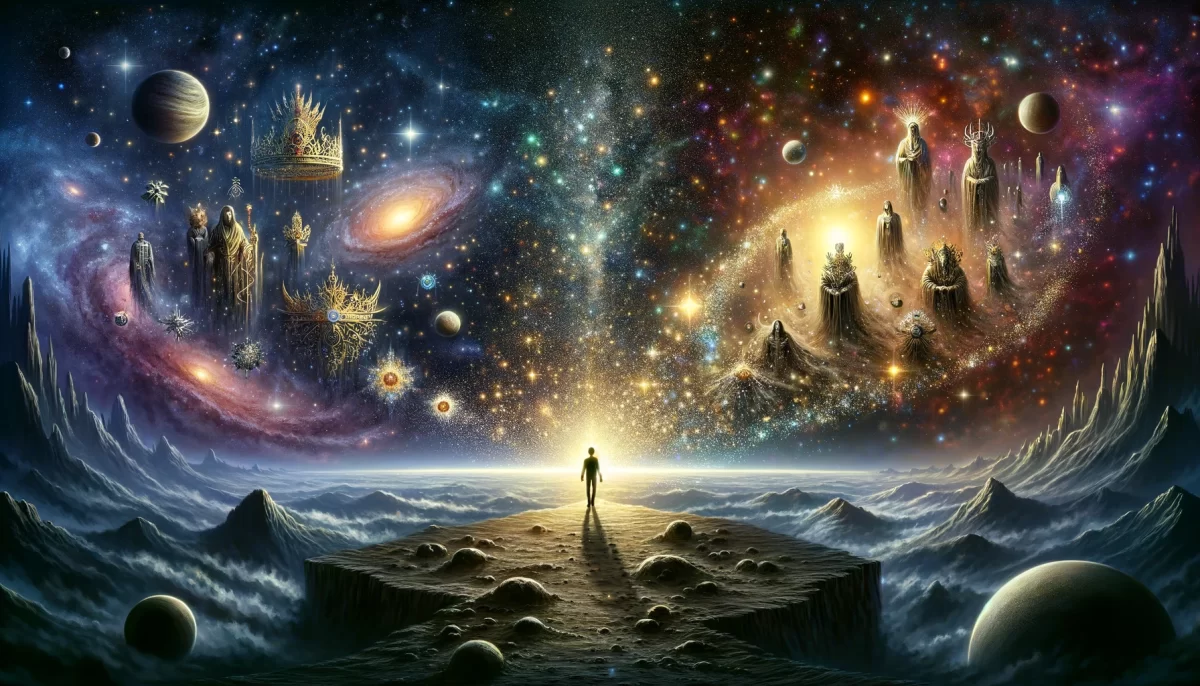
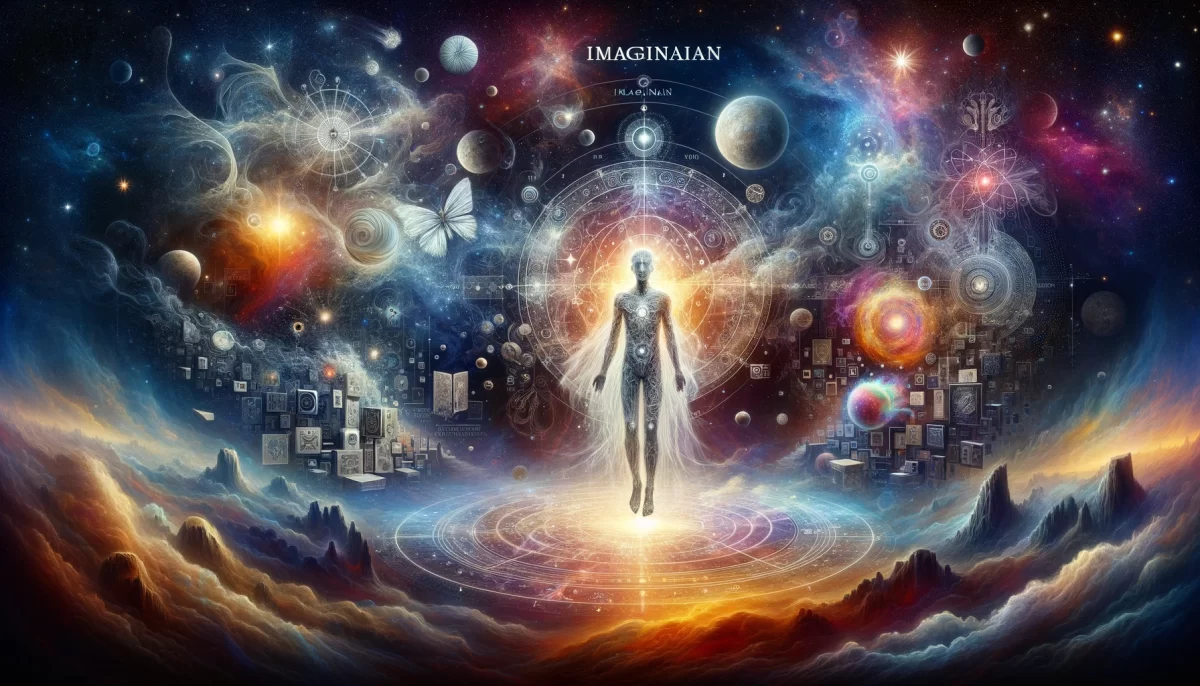
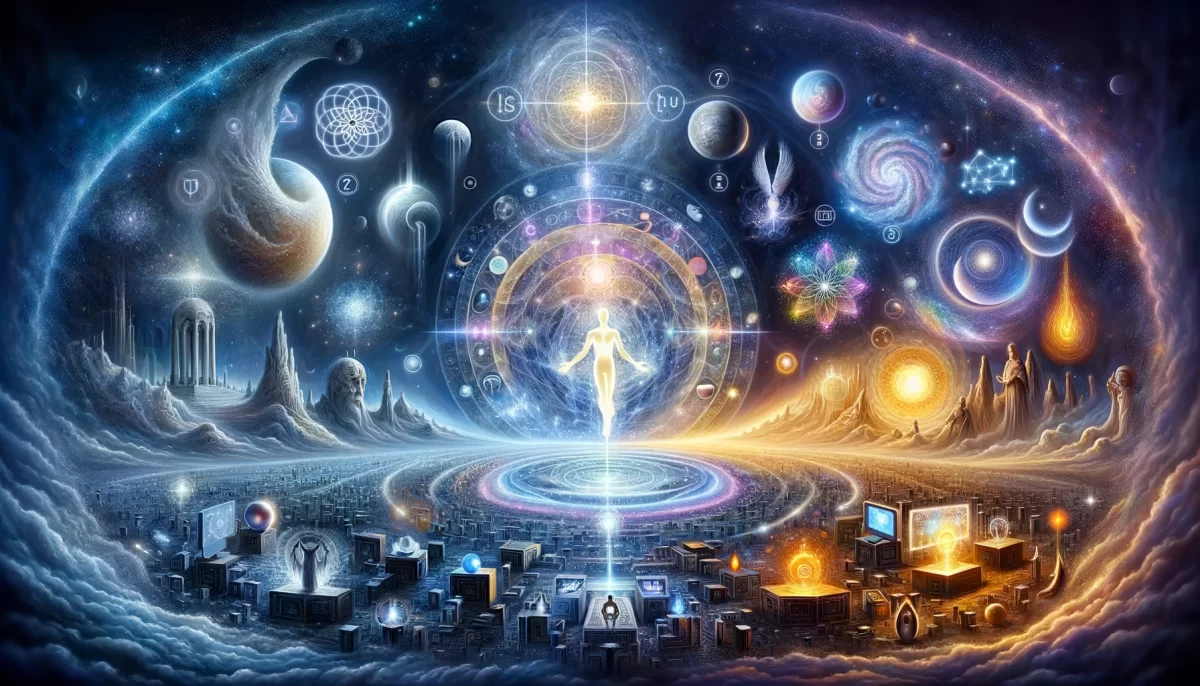
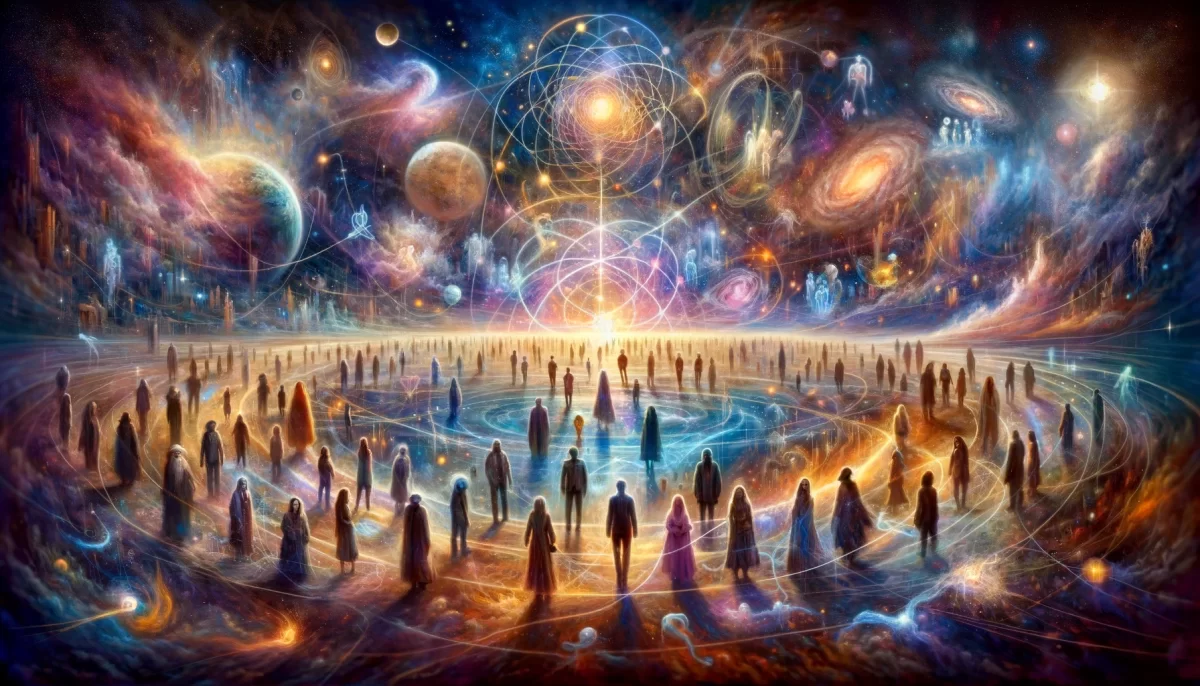
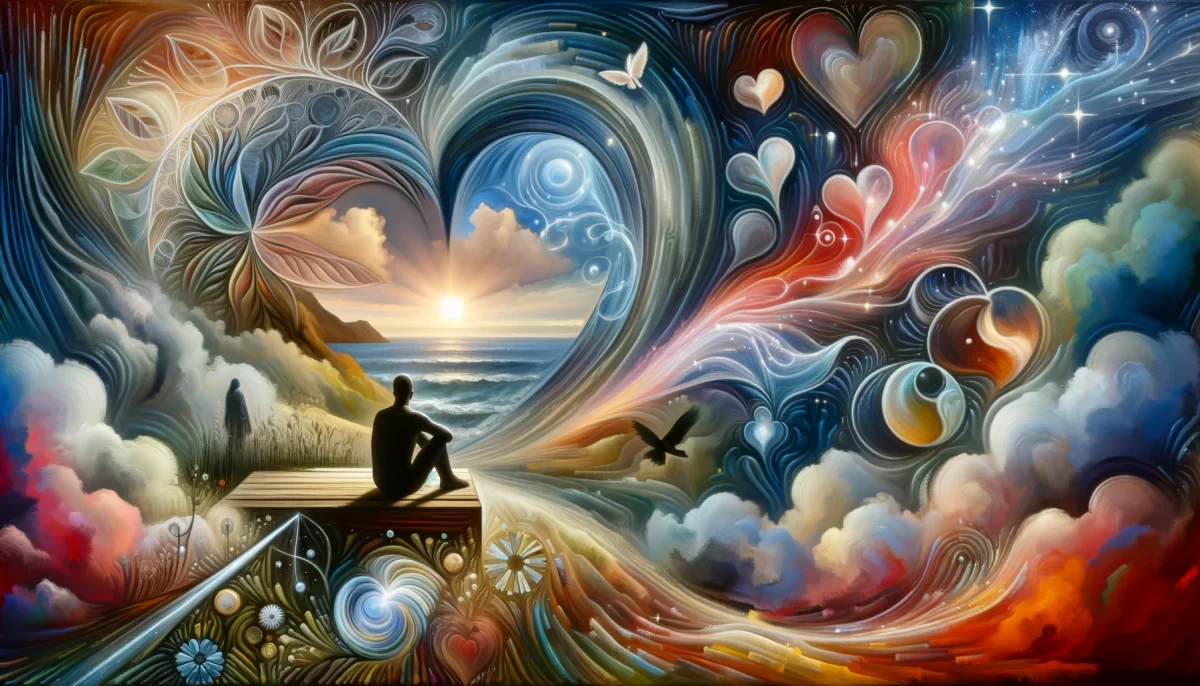
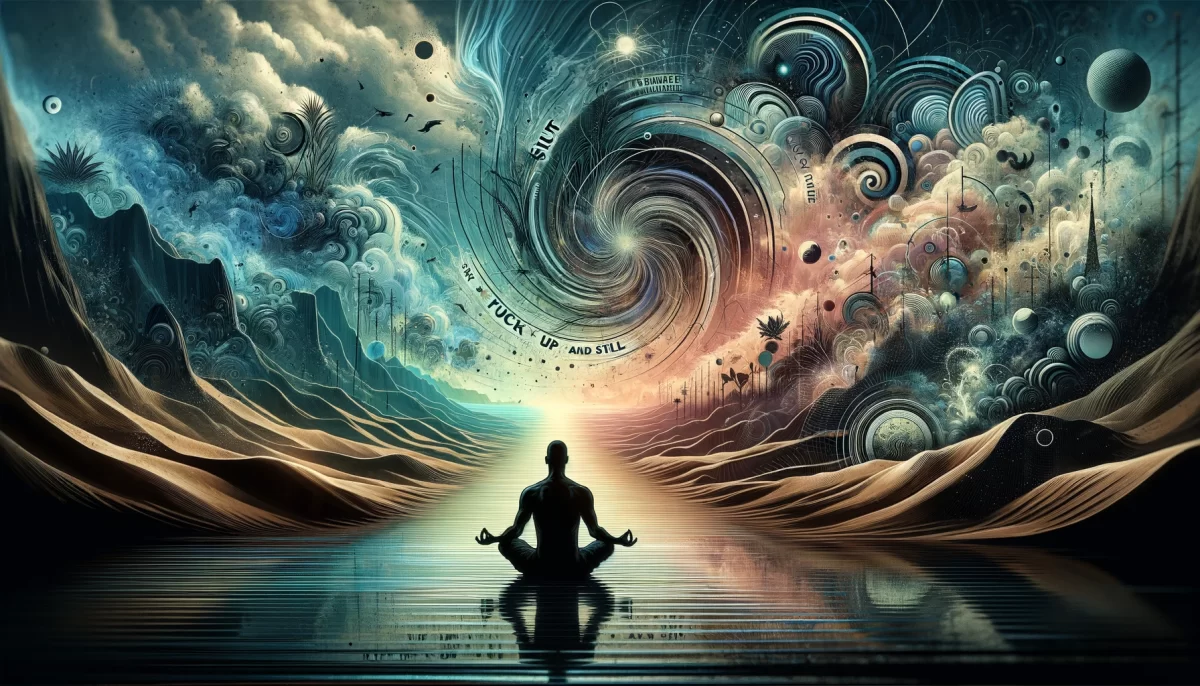
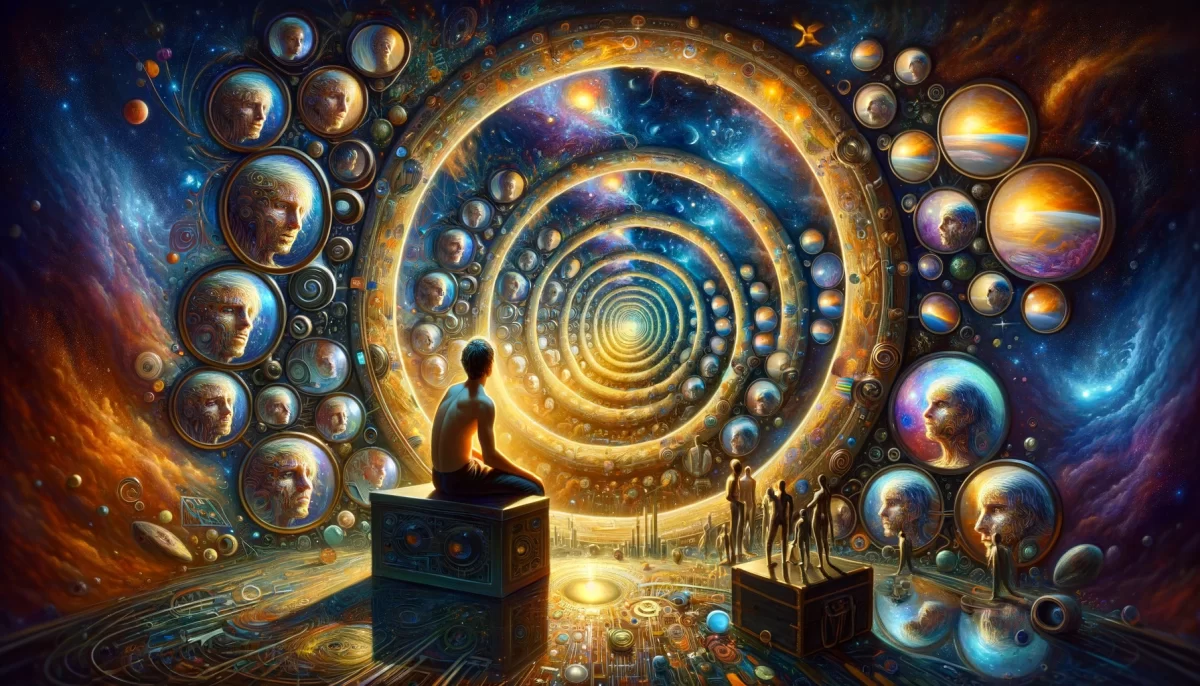
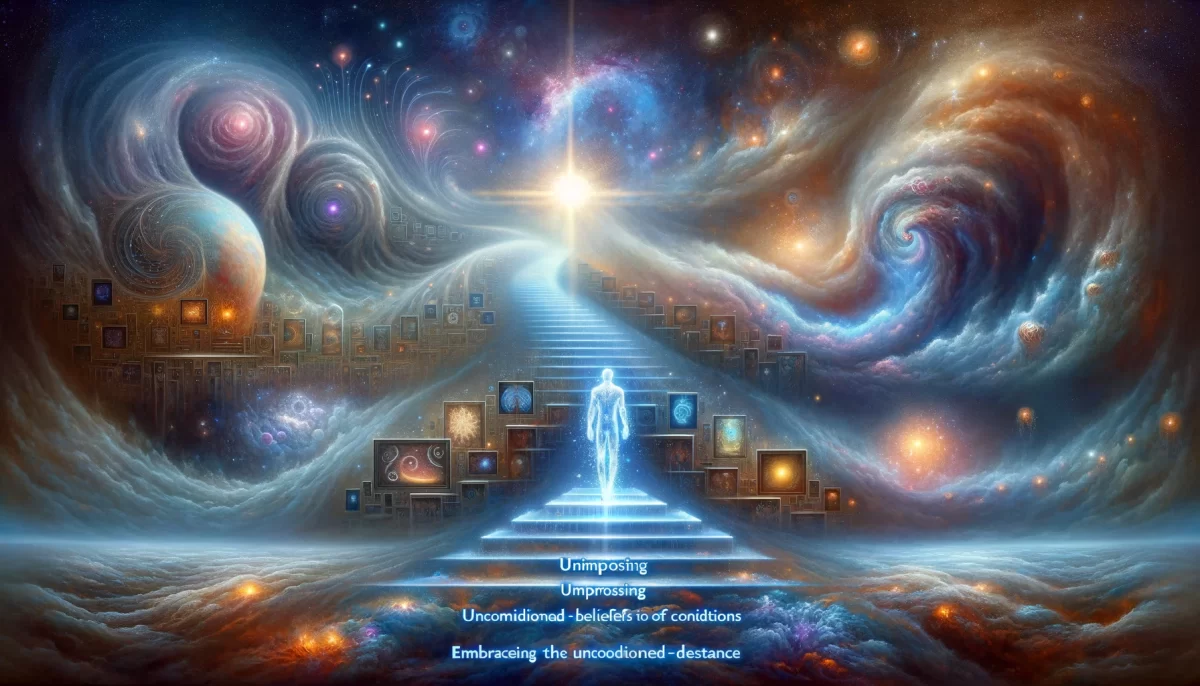
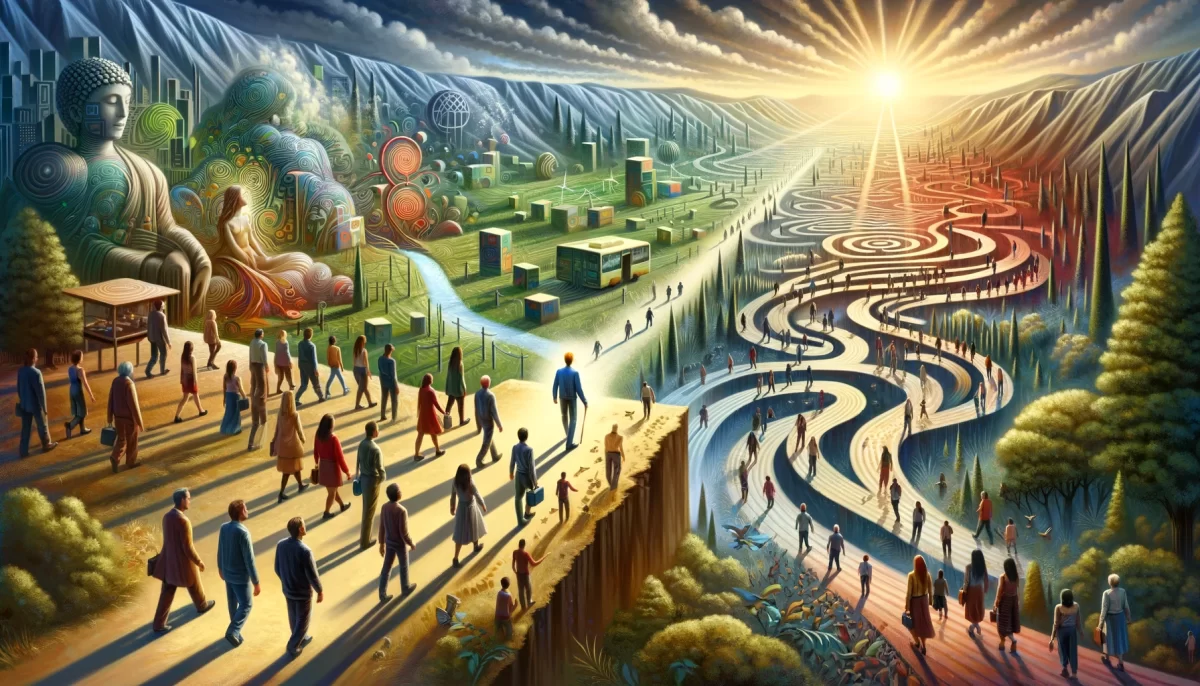
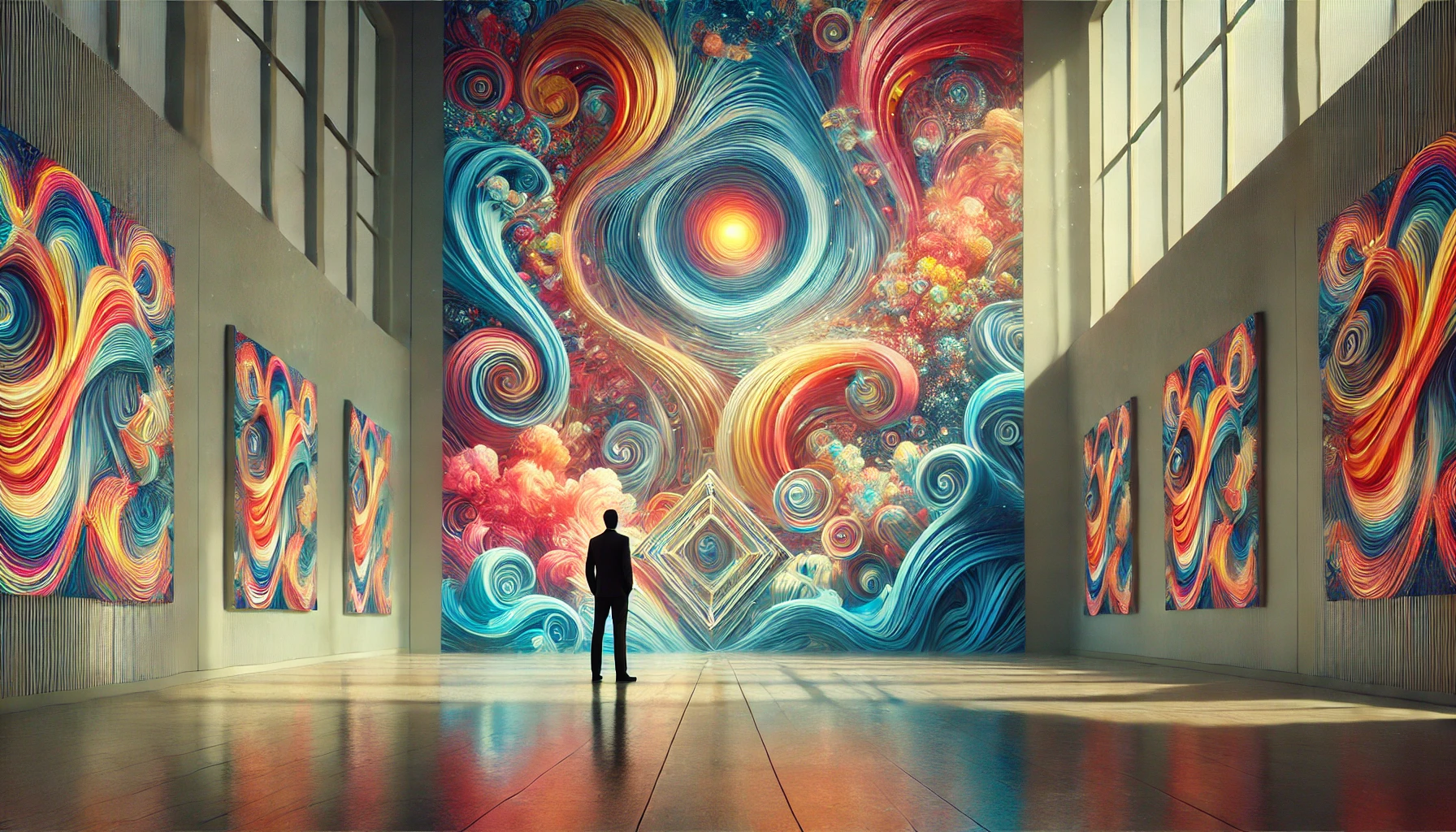

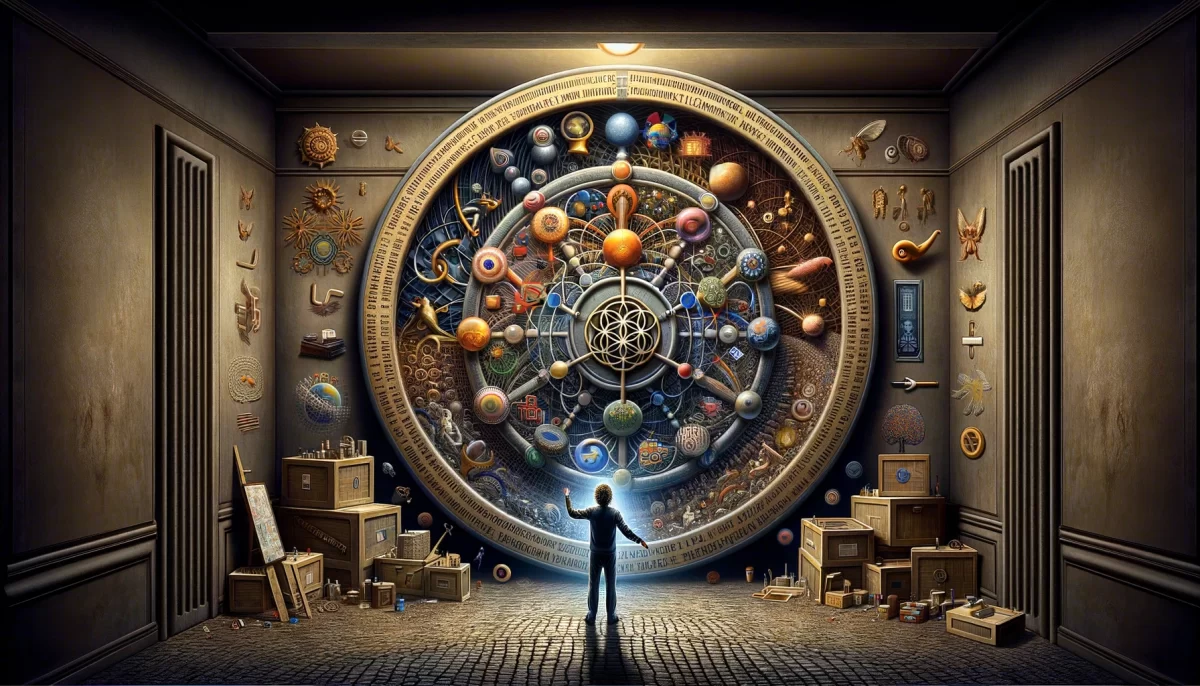
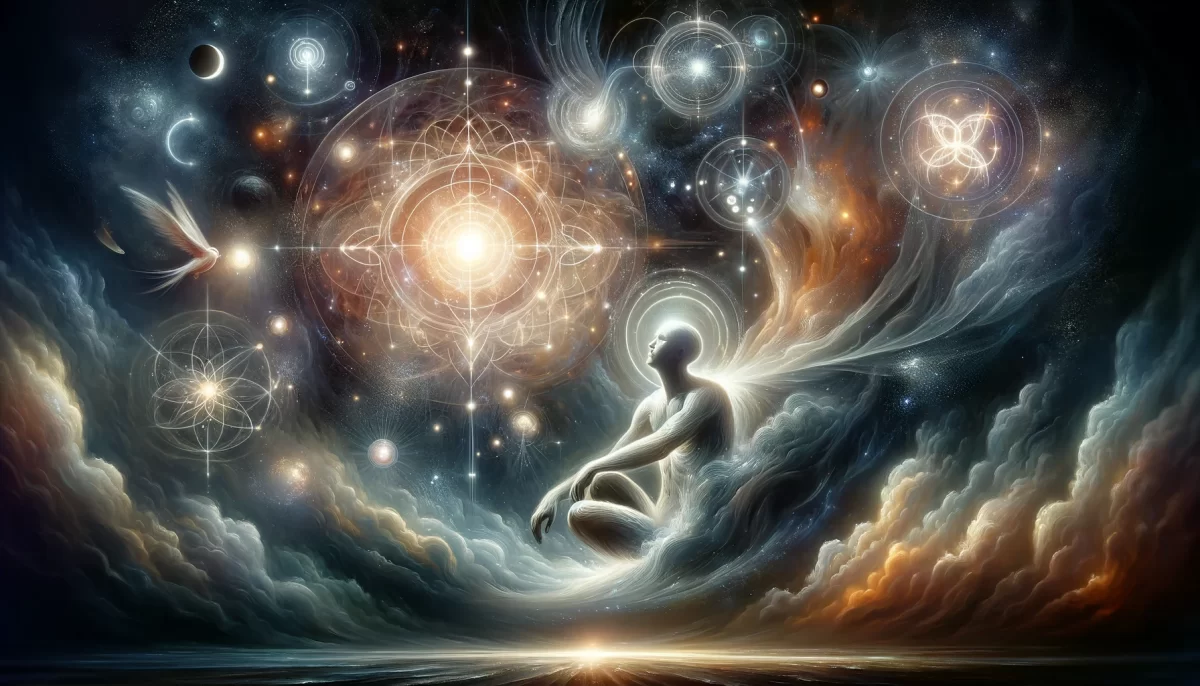
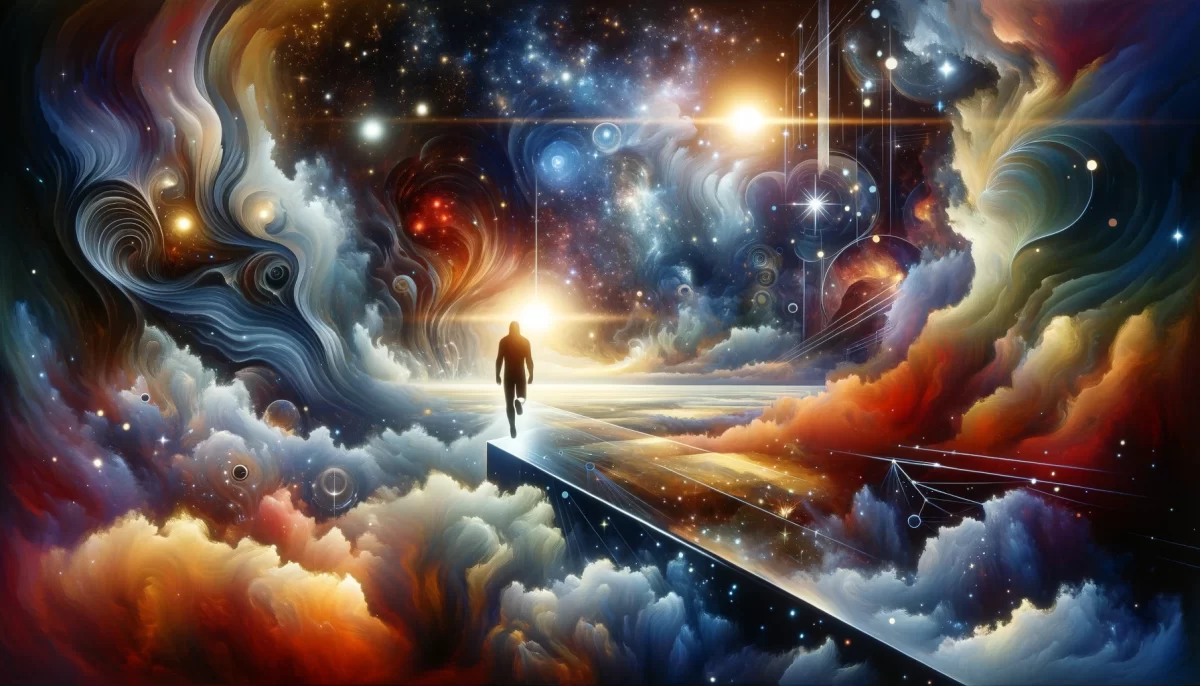
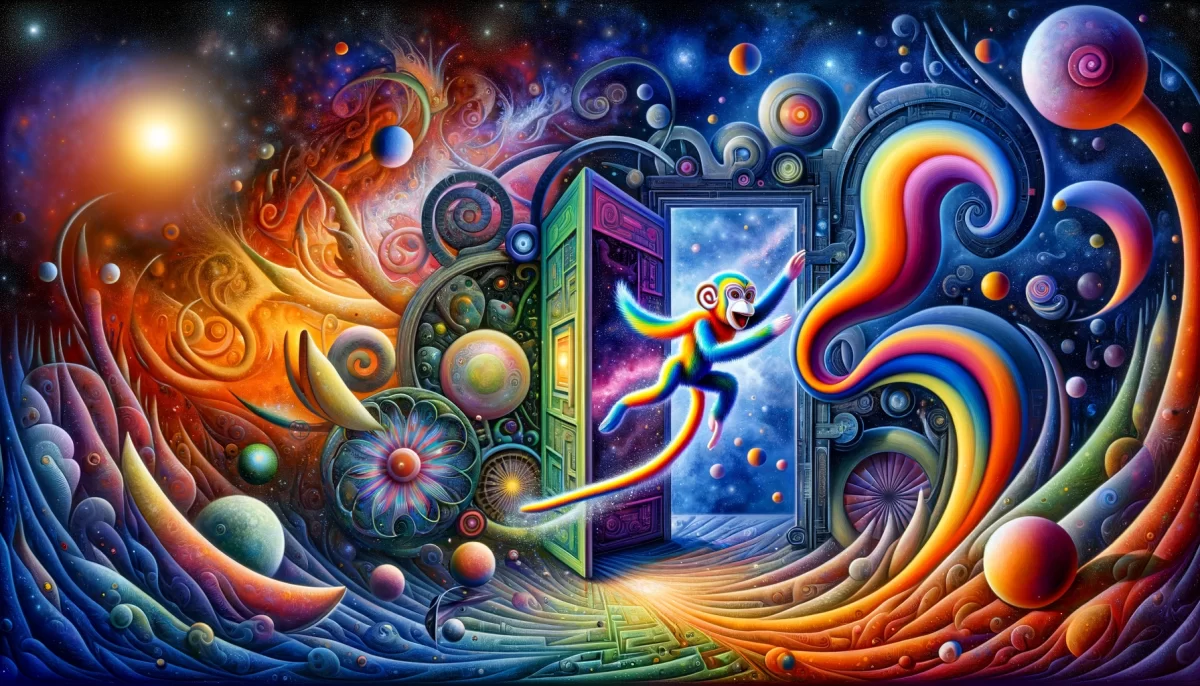
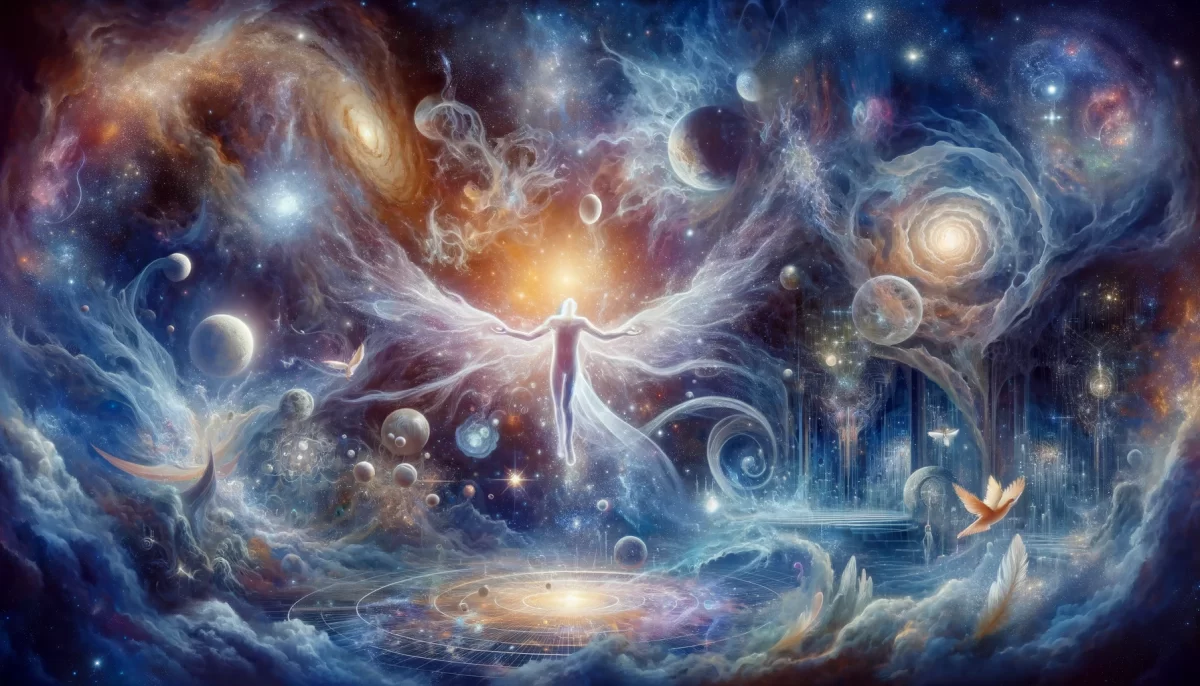
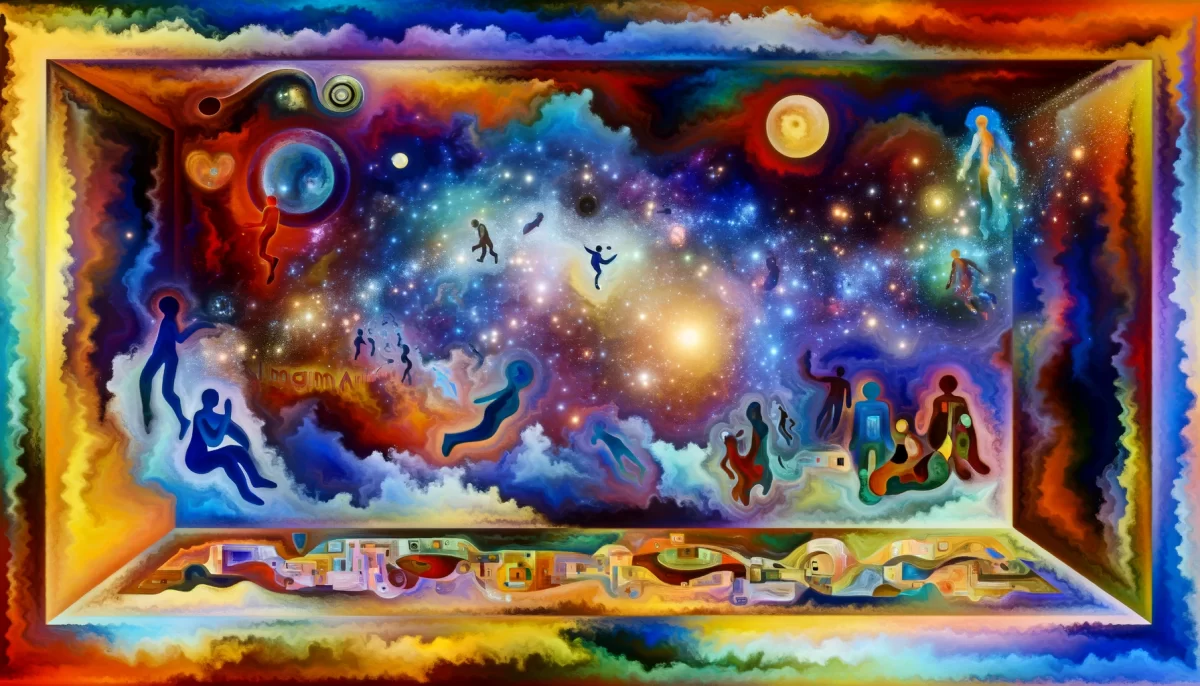
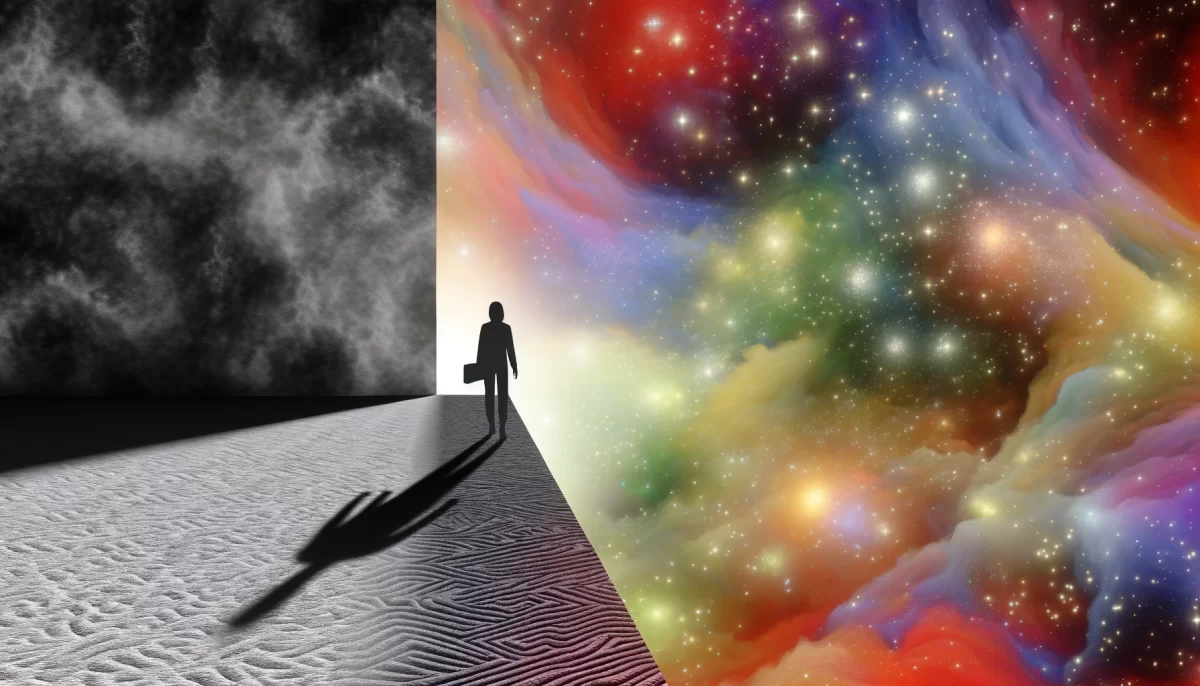
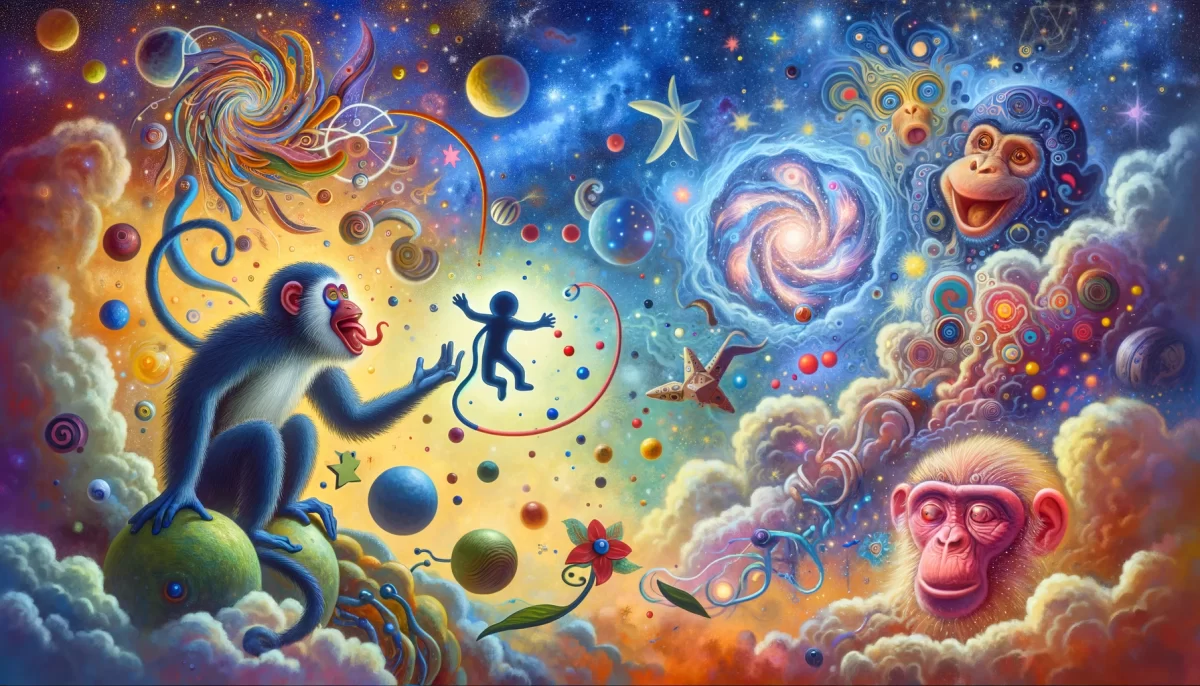
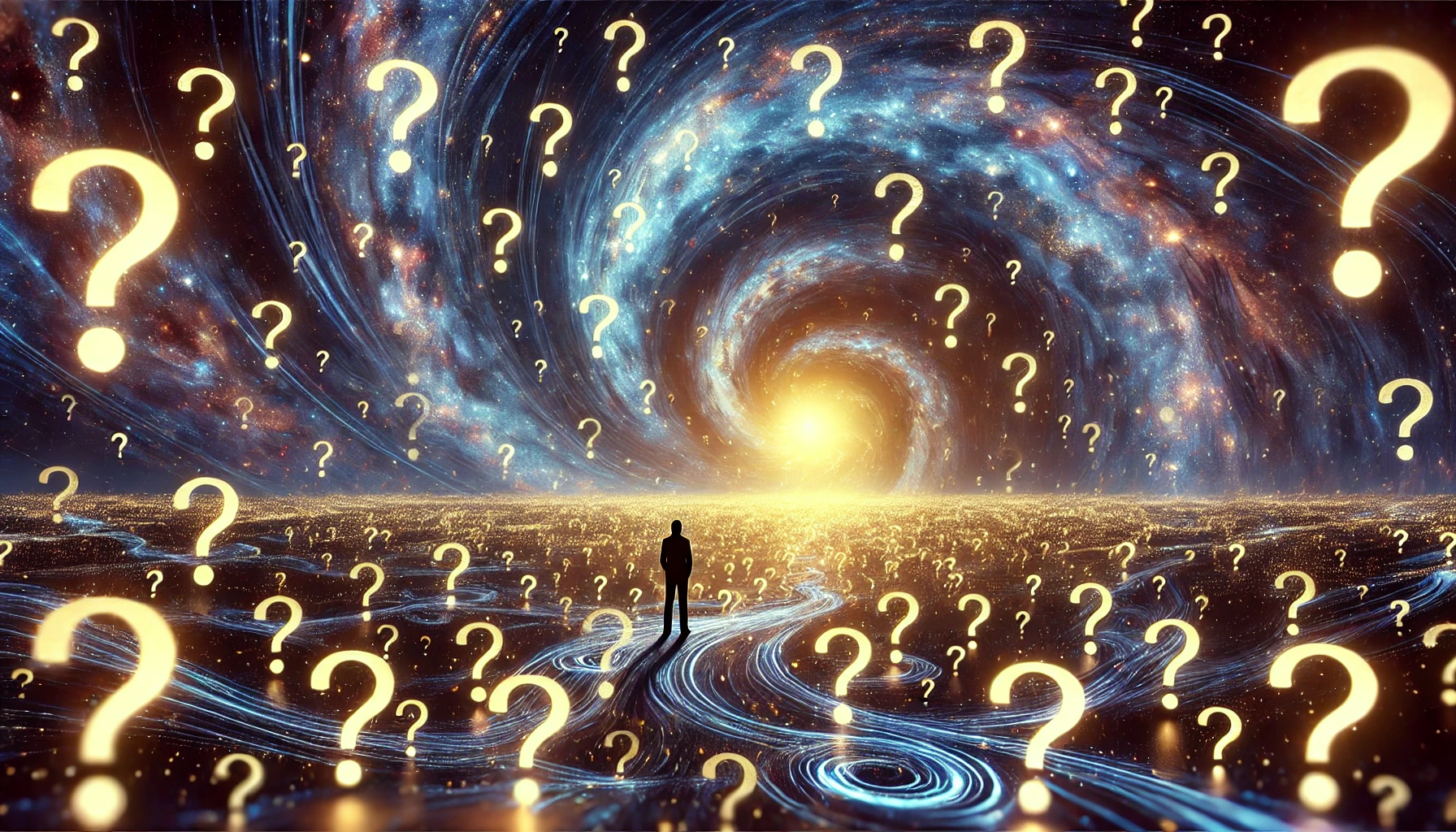
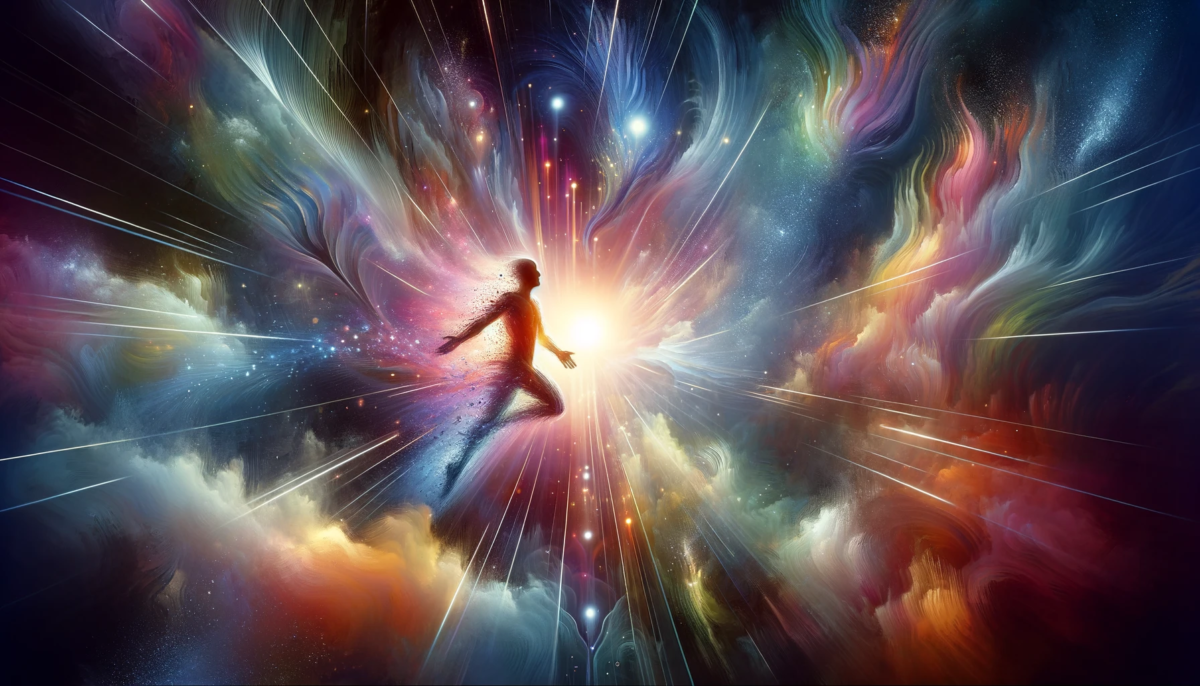
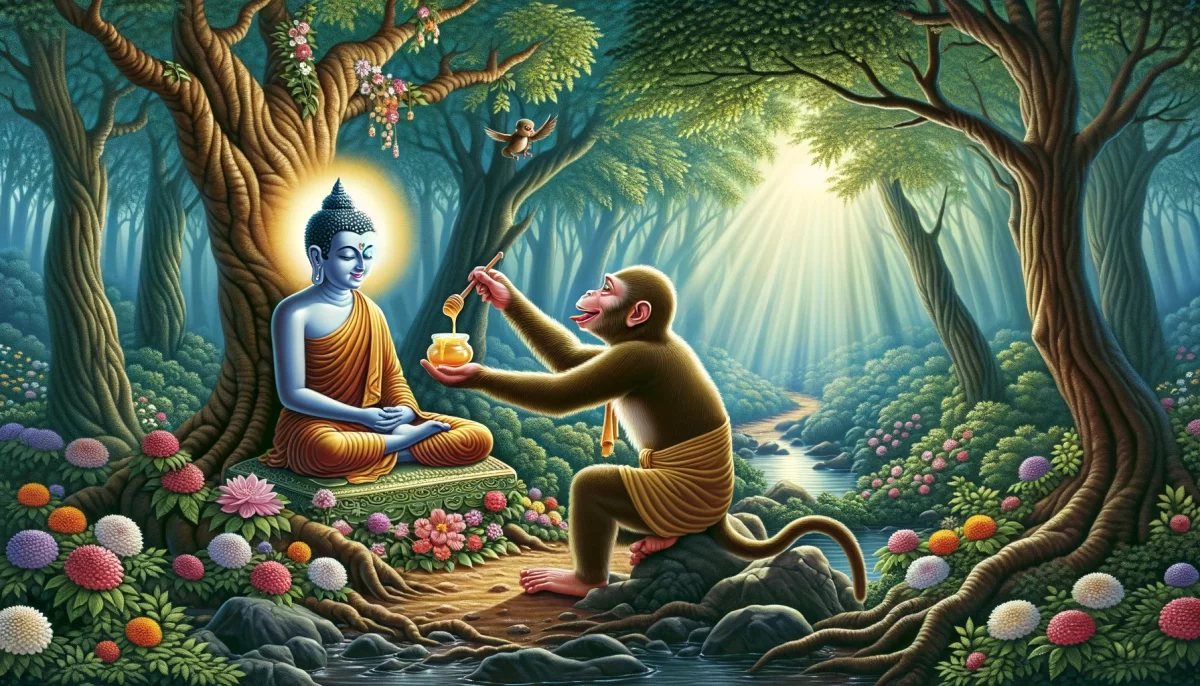
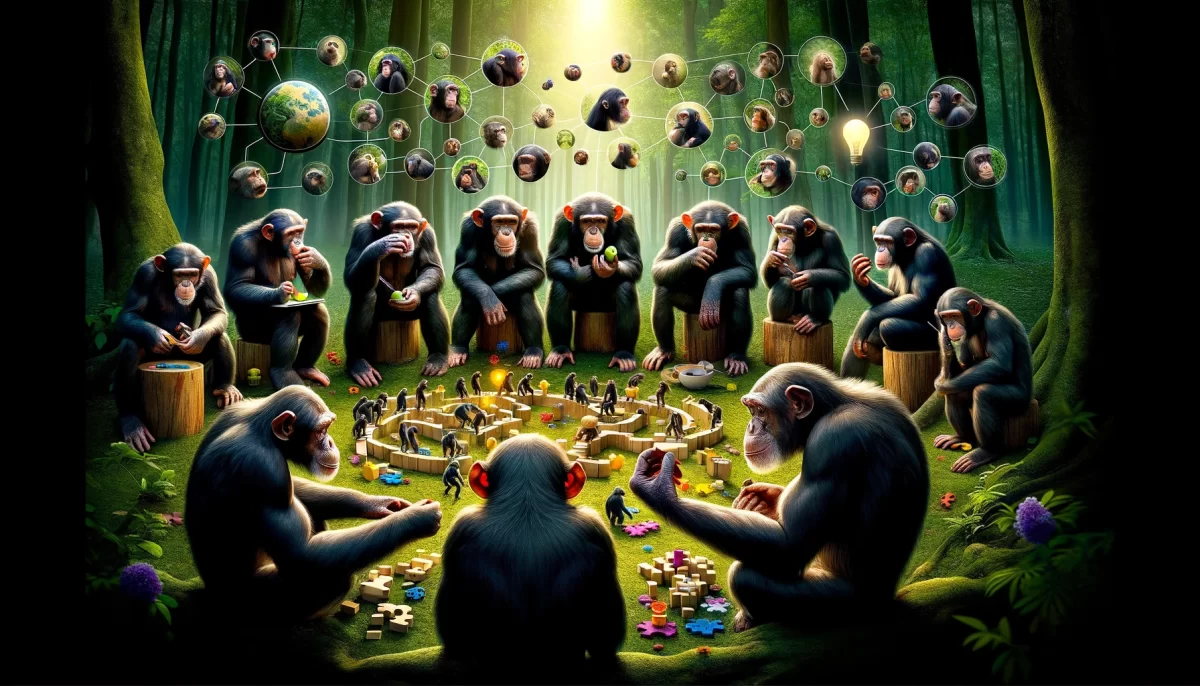
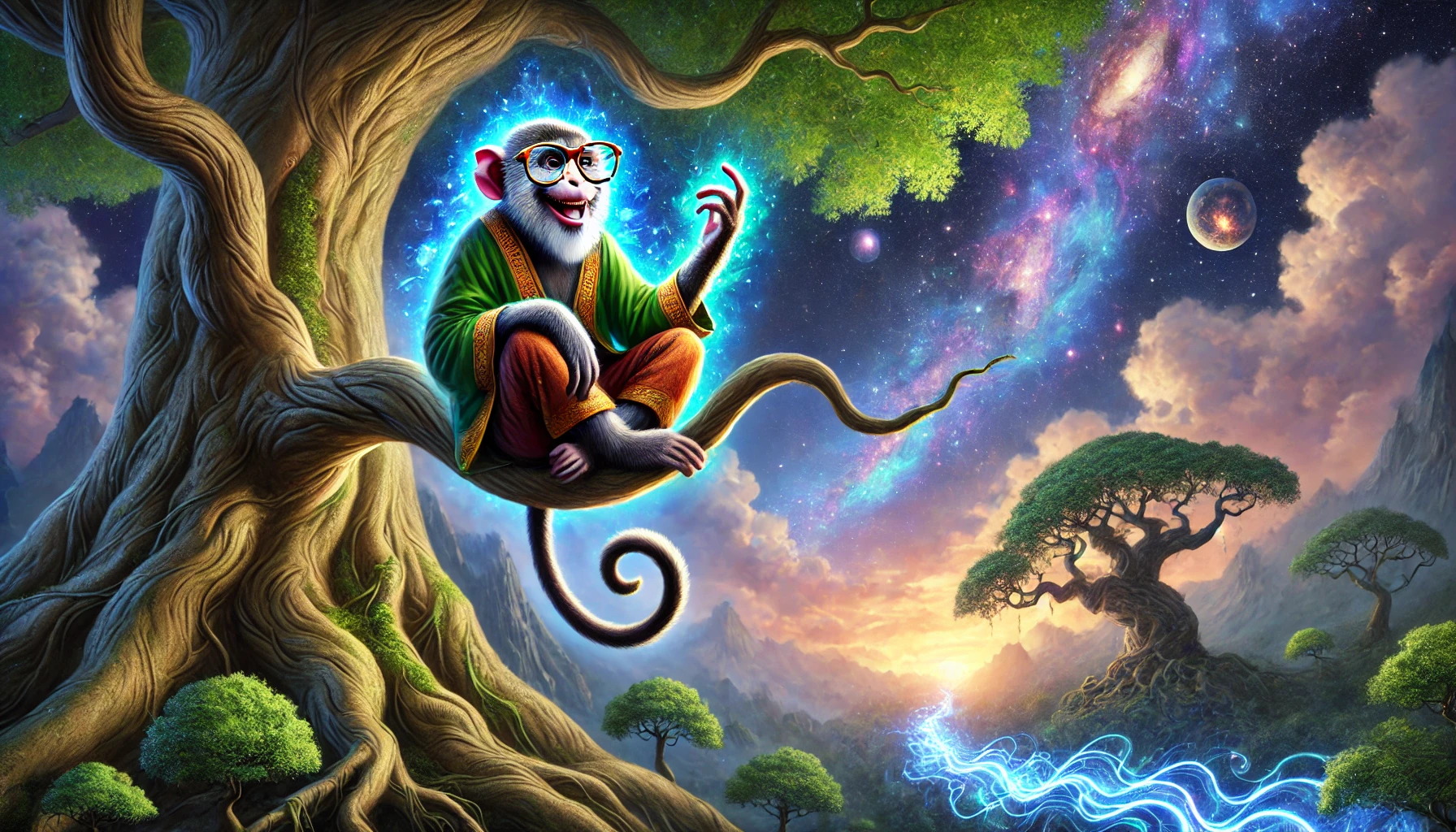
Leave a Reply